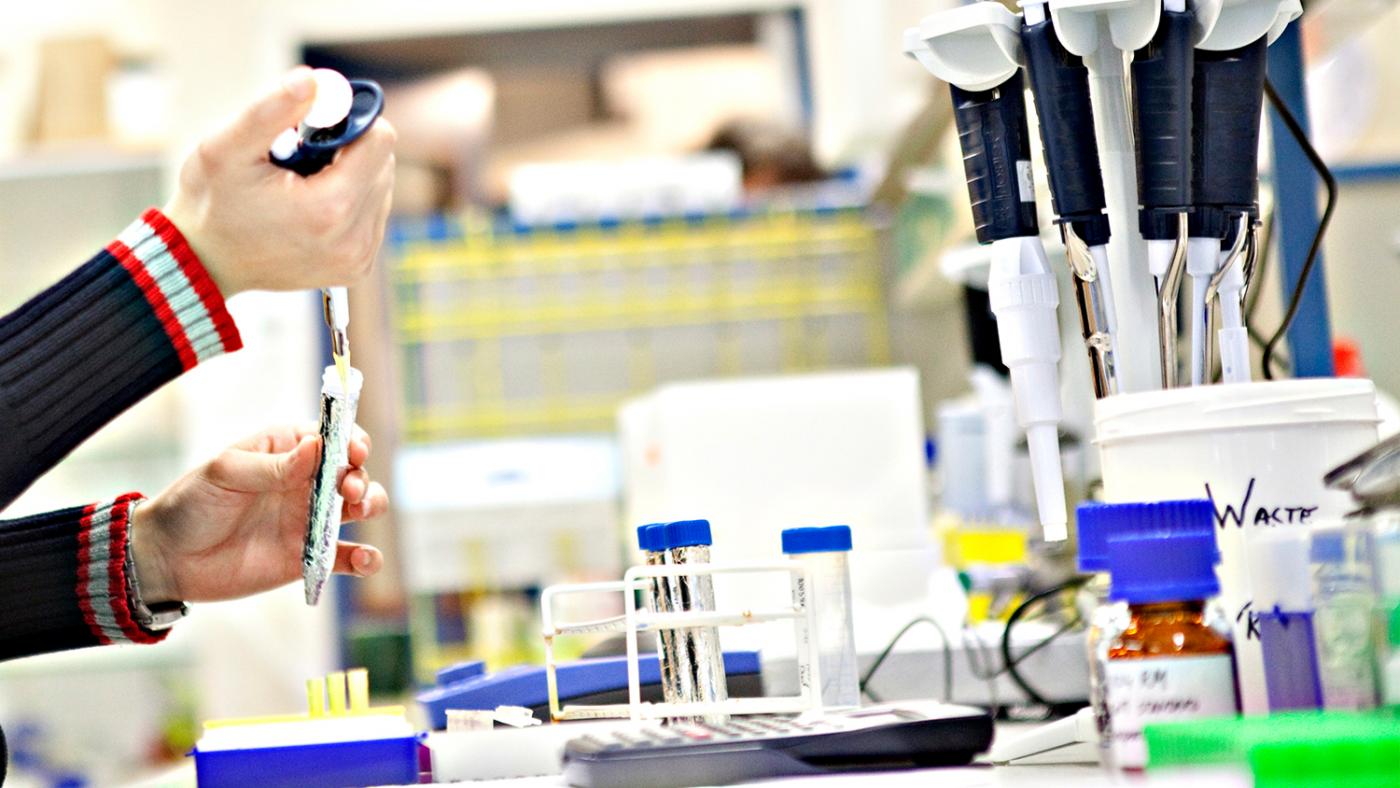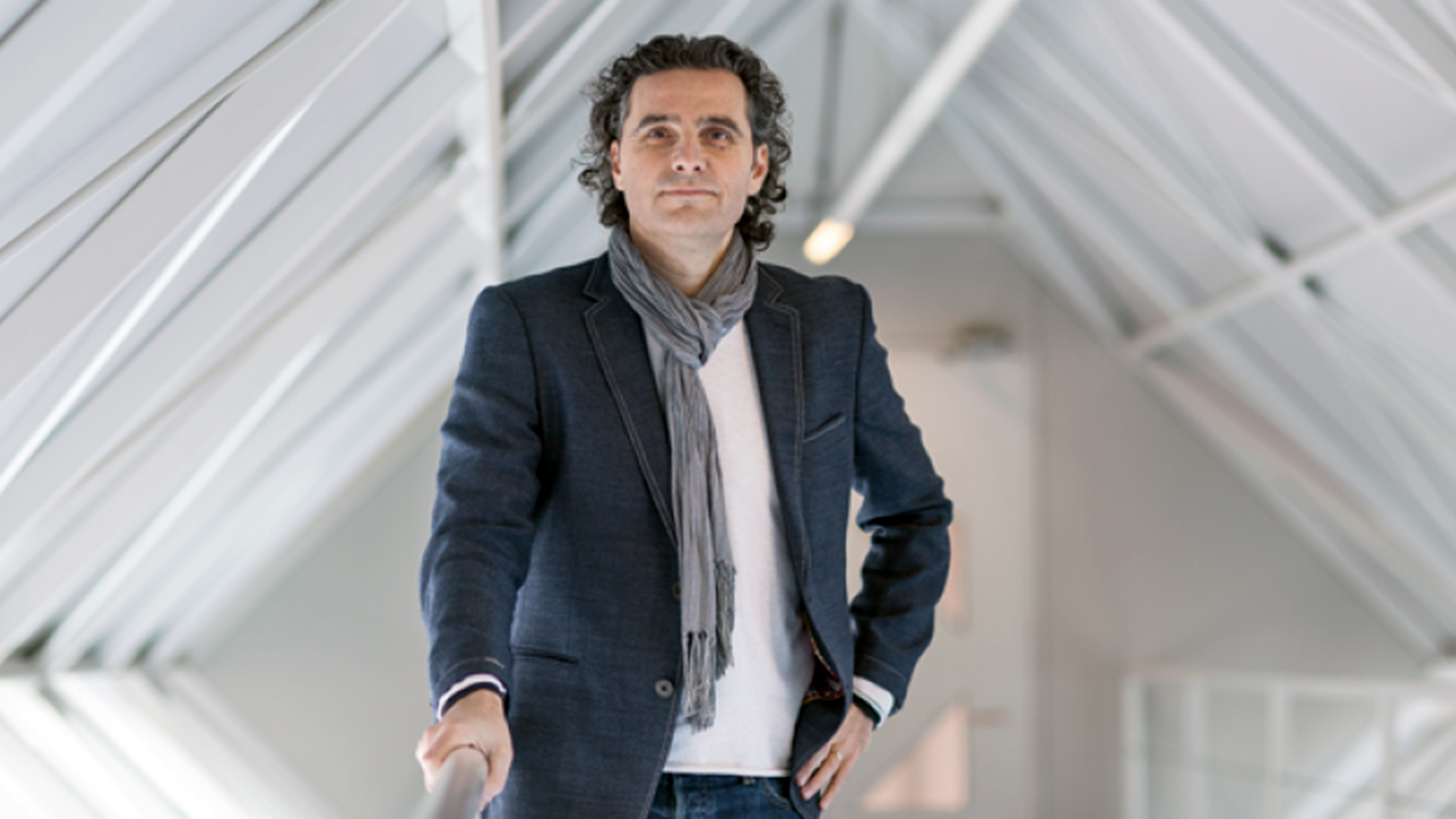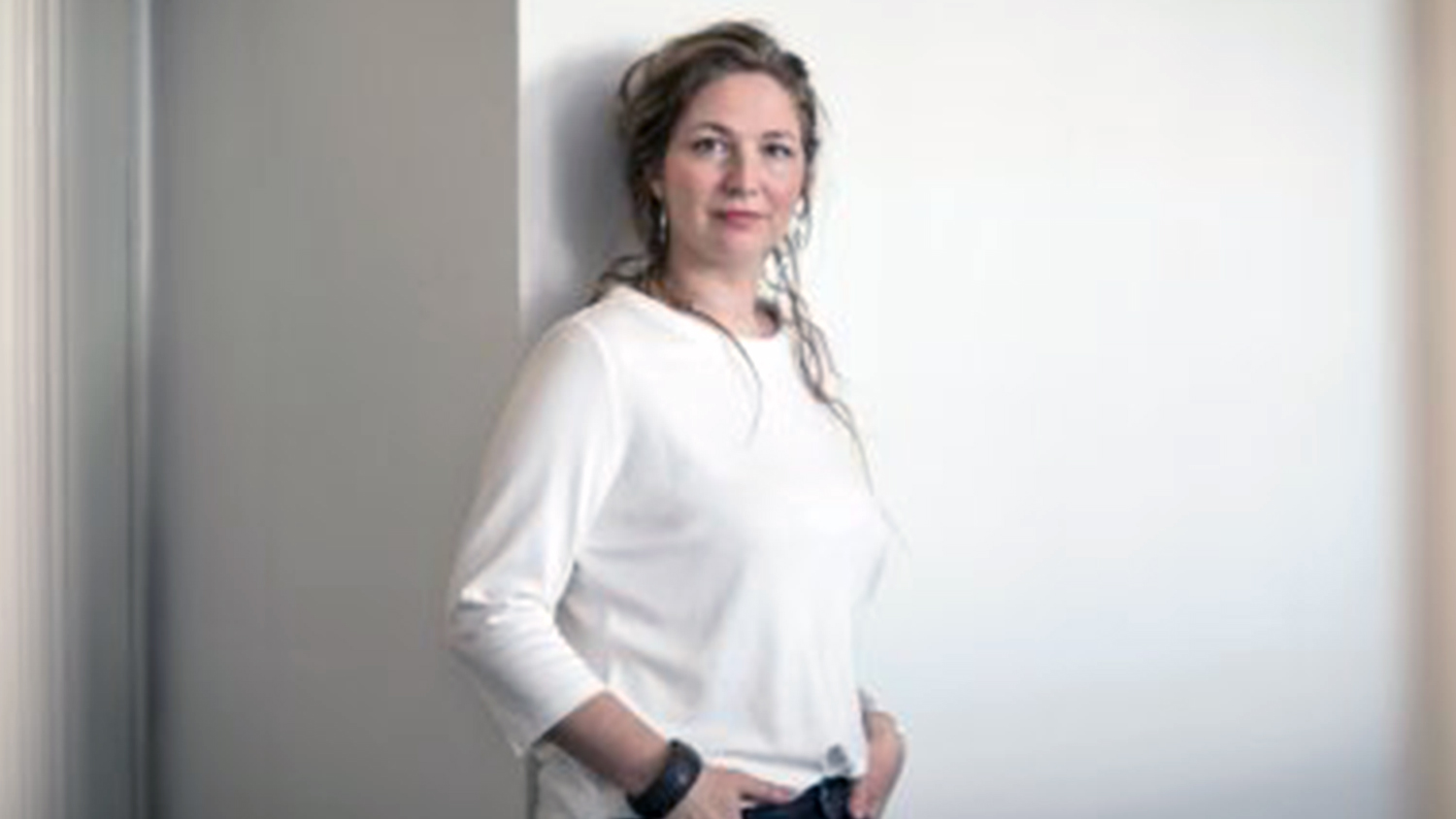Concerns among young researchers about delays caused by corona closures

Whether it was a misunderstanding or something else going on, he’s not sure. But professor of Computational Structural Biology Alexandre Bonvin was not amused, earlier this week. From other universities, he’d been hearing sounds that in many labs there, people were still continuing their work – albeit under strict safety regulations – whereas in Utrecht, almost all labs are closed.
As bioinformatician, Bonvin himself doesn’t work in a lab that often, and as a travelling ambassador of his innovative Haddock software for modelling protein interactions (“which we’re also going to use for corona research now”), he’s used to having his laptop as his office. But as scientific director of the Utrecht Bijvoet Centre for biomolecular research, Bonvin is also standing up for the interests of all experimental biologists and chemists that desperately need their labs.

Alexandre Bonvin. Photo copyright: Utrecht University
Bonvin says that in Utrecht, the message had consistently been that the closure of the labs was a nation-wide agreement made with the VSNU, the association of universities. But that didn’t seem to be the case. “So I understand that among some researchers here in Utrecht, some irritation started to play up.”
DUB asked around and was informed by rector Kummeling that there are indeed strict national regulations that entail labs are only open for corona research and a limited number of other exceptions. This was meant to prevent universities from interpreting the guidelines individually, which could lead to “weird” competitiveness. But two universities are said to work with more flexible interpretations of the guidelines – hence the unrest elsewhere.
‘Postdocs want to take that next step in their careers’
Regardless, Bonvin and Kummeling agree that the discussion about access to labs illustrates the concerns amongst UU researchers about the extended period of time in which no research is possible, and just how much these researchers want to see their labs reopened. Bonvin says that especially young researchers with temporary contracts would love to get back to work, as they’re seeing the delays in their research pile up.
‘There are grave concerns amongst PhD candidates, who are now at the start of their research, or in the finishing stages. And for Postdocs, delays can have serious consequences for their future. They want to be able to show beautiful results, to create an appealing publication that will help them take the next step in their careers. That might all fall apart now.”
In Bonvin’s opinion, research financers like NWO or the European ERC tend to be lenient when agreements and deadlines can’t be met. “But that doesn’t solve all problems, of course.”
The scientific director mainly refers to the legal restrictions for contract durations and for the number of legally allowed contract extensions. For PhD students, there’s usually a number of possibilities, but for Postdocs, this can get much trickier. Worst case scenario, non-European researchers could lose their residence permits. The question remains who would pay for extended contracts for PhDs and Postdocs.
Bonvin: “Everyone needs clarity.” He cautiously suggests that the universities could perhaps introduce a temporary arrangement. “We’re hoping from support from the government. Other industries are receiving assistance, too.”
‘Many PhDs and Postdocs have young families’
The fact that many PhDs are worried about the progress of their research is also clearly shown in the results of a survey conducted by the PhD council of the Graduate School of Life Sciences. Although most PhDs continue to work hard and are definitely not sitting idle, half of the 170 respondents state they’re afraid for delays, says president Laura Dijkhuizen. “That aspect was mentioned a lot more often than concerns about a lack of money or supervision.”
Dijkhuizen says there’s also a great need for more information about the possibilities of extending contracts. Twenty percent of respondents urge for a lobby for financing extensions in projects that are experiencing delays.
The Utrecht Young Academy, a platform for young UU researchers, also set out a survey about the concerns amongst their target audience. Although the survey is open until the end of the month, they’ve already received hundreds of responses. “Very telling,” says president Martine Veldhuizen.
Literary scientist Veldhuizen says the responses show a multitude of issues. PhDs are worried about completing their theses, and researchers with a tenure track position fear that the corona crisis will prevent them from meeting the requirements for obtaining a permanent contract.

Martine Veldhuizen. Photo copyright: Utrecht University.
The delays and frustrations about the delays aren’t only caused by the fact that researchers can’t access their labs or archives, can’t collect data, and that journals are delaying their publications because of a lack of peer reviewers. Researchers with a large education contract, for example, deal with a bigger workload than usual, because suddenly, all teaching has to be done online. Veldhuizen: “Someone told me: at home, you start to really notice how many hours you’re putting in.”
The survey also shows that the private lives of many young researchers also plays a role during this corona crisis. “Many young PhDs and Postdocs have young families, so they now have an increase in care responsibilities as well. But we’re also seeing responses from lonely PhDs, or ones with inadequate housing.”
No additional funding for now
In collaboration with research financers and interest representatives for PhDs and Postdocs, universities have asked the government for exemption from the rules. They want to see four-year contracts extended, and a possibility of more than the legally allowed two extensions introduced. Moreover, they ask for immigration services IND to be lenient with its requirements for residence permits for foreign researchers.
For now, it’s a matter of waiting to see whether extra funding will be made available for these extended contracts and for other researchers who fear problems in the long run with the duration of their contract. The General Education Association (AOb) had previously urged the government to establish an emergency fund for researchers, and the universities are in talks with different ministries about possible compensation.
Last Wednesday, after questions from members of parliament, minister Van Engelshoven stated she is not a proponent of allowing additional temporary contracts or an emergency fund. She hopes universities will give employees permanent contracts. She does, however, understand the issue with researchers with flexible contracts, and will talk with NWO, the institutions, and the researchers, to make sure everyone tries their best “to ensure nobody slips between the cracks.”
A statement issued mid-April by the universities and research financers in collaboration with representatives of PhD candidates and researchers had previously shown that no additional financing or generic rules could be expected from their side. They did introduce the option of holding a PhD ceremony online – an option that has since become popular amongst PhD candidates.
The emphasis is on ‘custom solutions’. Research supervisors will have to discuss with their PhD candidates and Postdocs about possible solutions. The statement also referred to the ongoing discussion about recognising and valuing scientists. This would be a great moment to really get to work on a new way of assessing, in which the quantity – for instance in number of publications – is no longer leading.
Together with their supervisors, PhD candidates will have to make the best of it
Earlier this month, president of the PNN Lucille Mattijssen told the Higher Education Press that she, too, was expecting relief to mainly come from a personal, individual approach. She called for universities and supervisors to be flexible with the requirements for a PhD.
The survey among UU PhD candidates in Life Sciences shows that the majority of PhD candidates are satisfied with the way their supervisors are helping them ‘make the best of the situation’, although president of the PhD council of the graduate school Laura Dijkhuizen adds some nuance to this. “From my own environment, I get the impression that especially introvert PhD candidates or ones from different cultures are more hesitant to approach their supervisors themselves, and are therefore more isolated.”
Martine Veldhuizen of the Utrecht Young Academy also emphasises the importance of custom-made solutions. “Academics themselves know best what they need. Supervisors need to listen to their wishes. It’ll give them some room to breathe if they know they’re being listened to. And perhaps not everything is possible, but that’s at least the start of good communication.”
Aside from that, she also calls for the university to strive towards obtaining “a great financial gesture” from governments and large research financers to make extensions of contracts possible. “That’s the odd thing, in this situation, universities should simultaneously pay attention to the microlevel of the individual researcher and the national, even international, level.”
‘It can be sour for those in the final phases’
Scientific director Alexandre Bonvin also thinks it should be possible to limit the delays for the majority of PhD candidates. “A PhD is not a path set in stone. There are some adjustments possible in those four years.” But especially for PhD candidates in the final phases of their research, and for Postdocs hoping fir results and scientific publications, this situation can be sour, he thinks.
For that reason, the Chemistry board has asked the leaders of research groups to extend the currently ending contracts of Chemistry PhD candidates by three months, and to finance this with project grants as much as possible. In the cases where this isn’t possible, each request will be assessed individually.
Bonvin doesn’t know how many contract extensions would be necessary yet. “But it’s clear that we can’t offer this to all our PhD candidates. We have 600 PhD candidates within the faculty of Science. That times around 20,000 euros – you do the math.”
In a meeting of the university council last week, staff member Gert Folkers asked the university board to provide more clarity to young researchers. In his immediate work environment, four PhD candidates are facing issues with their research as a result of the corona measures, while they’d previously already been granted a contract extension with temporary funding. What can the university do in such cases?
Rector Henk Kummeling offered empathy and promised a helping hand for research leaders. This week, Kummeling informed DUB that all of the faculties’ HR departments have been informed that an additional temporary contract is possible under specific conditions. But, at least for now, the groups will have to fund those themselves.
PhD candidates and Postdocs might be given priority
The question now is when the researchers will be able to get back to work. An operations work group, led by director of the Facilities Service Centre Eddie Verzendaal, is currently studying the conditions under which offices and labs can be safely used once more. The plan is still premised on a starting date of June 1.
Another question that arises is which researchers will be able to start first – because a 1.5-metre-distance-university cannot just get back to business as usual. Agreements need to be forged about who gets priority, and possibly about rotation schedules. A university work group called ‘Starting up Research’, led by vice-dean of Humanities Ted Sanders, will advise the university board.

Sanders sees the unrest amongst PhD candidates and Postdocs, and feels it is his duty to have his advice reflect that. He also thinks that in most cases, with flexibility and realism, solutions can be found. And that doesn’t have to be at the expense of the quality. “We’re not going to hand out corona diplomas.”
But he does think it’s realistic that in the proposal for ‘prioritising’ of research activities, the ‘vulnerable groups’ get priority. PhD candidates and Postdocs in the final phases of their research could benefit from that. “We’re going to see whether we can help them first.”
Alexandre Bonvin is curious about the limitations his experimental researchers will have to deal with in the labs and how they will work in practice. “In the past years, great financial pressure has been exerted to make the labs smaller. They’ve been in use very intensively in the past few years already. At the same time, scientists in a lab know like no other how to work safely.”
But one thing is clear: if it was up to Bonvin, the UU biologists and chemists will head back to their lab when it’s possible to do so safely. Preferably sooner than June 1.